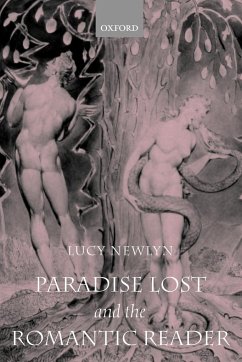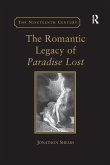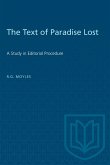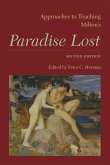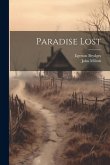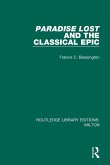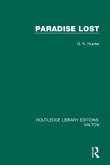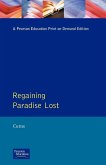Milton emerges as a poet of indeterminacy, not an authority figure, whose concern with the problematic issues of revolution and religion, sexuality and selfhood, make his writing relevant and accessible.
Was Milton on the side of the angels or the devils? Was he republican or anti-republican, feminist or misogynist? Did he value innocence or experience? This book shows how the Romantic reader responded, in complex and often paradoxical ways, to multiple ambiguities inherent in the very language of Paradise Lost. It examines ambivalent allusions to Satan and God, in responses to the French Revolution (Coleridge and Wordsworth), in studies of the origin of evil (Godwin, Blake, the Shelleys), in accounts of the creative imagination, and it looks at how Eve pervades representations of female sexuality (Byron and Keats). The book culminates in a chapter on Blake's Milton and also considers such prose writers as De Quincey, Lamb, Wollstonecraft, and Hazlitt.
Hinweis: Dieser Artikel kann nur an eine deutsche Lieferadresse ausgeliefert werden.
Was Milton on the side of the angels or the devils? Was he republican or anti-republican, feminist or misogynist? Did he value innocence or experience? This book shows how the Romantic reader responded, in complex and often paradoxical ways, to multiple ambiguities inherent in the very language of Paradise Lost. It examines ambivalent allusions to Satan and God, in responses to the French Revolution (Coleridge and Wordsworth), in studies of the origin of evil (Godwin, Blake, the Shelleys), in accounts of the creative imagination, and it looks at how Eve pervades representations of female sexuality (Byron and Keats). The book culminates in a chapter on Blake's Milton and also considers such prose writers as De Quincey, Lamb, Wollstonecraft, and Hazlitt.
Hinweis: Dieser Artikel kann nur an eine deutsche Lieferadresse ausgeliefert werden.

